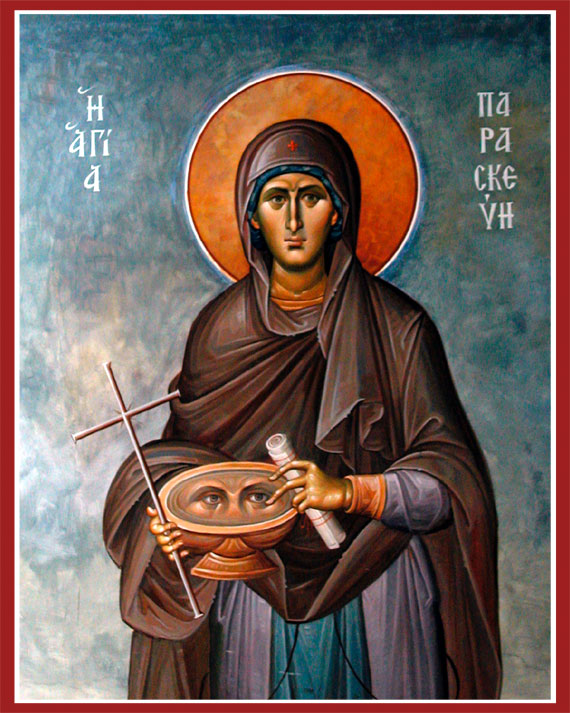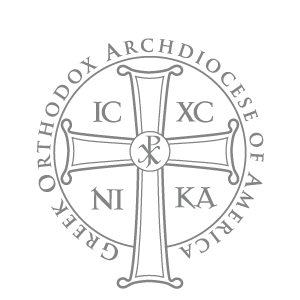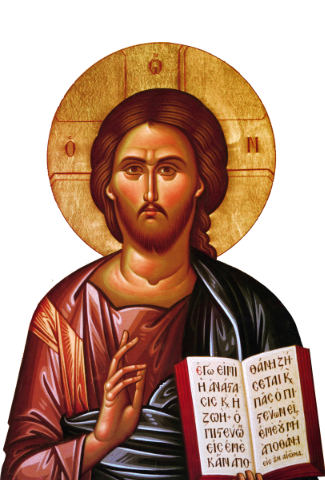Paraskeve the Righteous Martyr of Rome

The holy and glorious Virgin-Martyr Saint Paraskevi (also Paraskeva) was arrested during the reign of the Roman Emperor Antoninus Pius (r. A.D. 138-161) under the penalty of refusing to worship idols and adhering to the state pagan religion. After enduring many tortures, she was eventually released by the emperor, continuing to profess Christ. She was eventually tortured and beheaded by the Roman governor Tarasius in the year 180. The Church commemorates her on July 26.
Saint Paraskevi, The Parthenomartyr, (July 26th), was born in a village near Rome during the reign of Hadrian (117-138 AD). Her parents were the pious Christians Agathonikos (Agathon) and Politea. Her parents prayed fervently for a child, and God finally blessed their piety. They gave great honor to Friday, the day of Our Lord’s suffering. Being born on this day, her parents named her Paraskevi (“Friday” in Greek, but literally “preparation”). St Paraskevi obtained an excellent education from both secular and Scriptural instructors. She was also very knowledgeable in the field of philosophy. Bolstered by her Christian upbringing, she often conversed with other women about Christianity, trying to strengthen their faith in this new religion. Many distinguished families wanted this beautiful, educated and rich woman to marry their sons. Her understanding and kindness made her even more desirable.
However having a higher goal in life, St. Paraskevi rejected any marriage proposals. When she was 20 years old, both her parents died leaving her as the sole heir to the family fortune. St Paraskevi did not use her fortune for herself. Filled with the spirit of Christ and Christian ideals, she sold all her worldly possessions using the money to relieve human suffering. There was a portion retained to a community treasury that supported a home for reverent virgins who stayed in a kenobion, a type of commune like a contemporary monastery. These women prayed and fasted doing charitable works. They preached primarily to Hebrew and idol worshiping women giving them an opportunity to learn about Christian salvation. She left Rome at the age of 30 and began her holy mission, passing through many cities and villages. St Paraskevi�s activities occurred during a period that the Jews and Romans persecuted the Christian religion with the greatest intensity. Antoninus Pius (138-161) ruled Rome at this time, and he did not execute Christians without a trial. She was not caught immediately or put to death. Instead, Antoninus protected Christians against the blind mania of the Jewish and Roman inhabitants. Christians could only be brought to trial if another citizen lodged a formal complaint against them. Antoninus however had to repeal this law because of the many disasters which had befallen Rome and which were blamed on the Christians. Strong in faith, learning, and eloquence, Paraskevi spoke persuasively to her fellow Roman citizens, leading them from idolatry to faith in Christ.
Antoninus then approached the cauldron only to be blinded by the hot steam and searing emissions coming from the area. At this moment the mighty emperor asked for the intervention of St Paraskevi to heal him from this affliction to which she responded: “Emperor, the Christian God is healing you from the blindness that was given to you as a punishment”. Immediately, he regained his sight. Humbled by the miracle he freed the Saint, allowing her to continue her missionary activity and ended all persecutions against the Christians throughout the Roman Empire. From this episode it is clear to the Christians that St Paraskevi has the intercessional ability to help people with visual ailments. Astonished by the miracle, Antoninus released Paraskevi. He also ceased persecuting Christians throughout the Roman Empire. This period was brief.
The next morning Paraskevi was taken willingly to the Temple of Apollo. Everyone praised Tarasios, thinking that he had succeeded in breaking St Paraskevi’s faith. However, upon entering the temple, the Saint raised her hand and made the sign of the cross. Suddenly, a loud noise was heard and all the idols in the temple were destroyed. The priests and idolaters dragged her from the altar, beat her, and pushed her out of the temple. The priests demanded that Tarasios kill Paraskevi. She was convicted and condemned to death by beheading. It was customary to give the condemned their last wish. She asked to be left alone for a few moments so that she might pray for the last time. Afterwards, the roman soldiers returned and executed the Saint. Many healing miracles occurred as a result of St Paraskevi’s divine intervention. It is said that that merely coming in contact with he dirt of her grave faithful, crippled could walk, demonized would return to health and that the infertile would bear children.
Most importantly St Paraskevi healed the blindness of the roman emperor Antoninus Pius while she was in a heated cauldron. Her merciful disposition to her tormentor has made her an intercessor Saint for the healing of eye ailments. Her remains were eventually taken to Constantinople, where they are venerated by the faithful to this very day. Appropriate to your calling, O Champion Paraskevi, you worshipped with the readiness your name bears. For an abode you obtained faith, which is your namesake. Wherefore, you pour forth healing and intercede for our souls. O most majestic One, we have discovered your temple to be a spiritual clinic wherein all the faithful resoundingly honor you, O famed and venerable martyr Paraskevi.
-
Apolytikion in the First ToneAppropriate to your calling, O Champion Paraskevi, you worshipped with the readiness your name bears. For an abode you obtained faith, which is your namesake. Wherefore, you pour forth healing and intercede for our souls.
-
Kontakion in the Plagal Fourth ToneO most majestic One, we have discovered your temple to be a spiritual clinic wherein all the faithful resoundingly honor you, O famed and venerable martyr Paraskevi.

